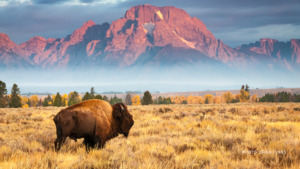For immediate release August 29, 2023
Media contacts:
Greta Anderson, Western Watersheds Project (520)623-1878;greta@
Michael Robinson, Center for Biological Diversity, (575) 313-7017, michaelr@biologicaldiversity.
Chris Smith, WildEarth Guardians, (505) 395-6177, csmith@wildearthguardians.org
Mary Katherine Ray, Rio Grande Chapter Sierra Club, 575-537-1095 mkrscrim@gmail.com
TUCSON, Ariz. – Wildlife Services, a program of the U.S. Department of Agriculture, has released a new set of “Standards of Evidence” it will use to assert attribution of livestock deaths in Arizona and New Mexico, a change that conservation groups sought in order to ensure Mexican gray wolves aren’t unfairly blamed for depredations they didn’t commit. The new standards require evidence that the animal was alive during the wolf encounter, such as subcutaneous hemorrhaging, and additional indicators of wolf involvement.
“Our goal has been to make sure that Mexican gray wolves aren’t being unfairly blamed for livestock depredation,” said Greta Anderson, deputy director of Western Watersheds Project. “The over-reported incidence of wolf involvement in cattle deaths in the southwest has had negative impacts on the wolf recovery program, including the killing and capture of wild wolves. We’re hoping the new standards help prevent that from happening again.”
Today’s action follows an exposé of Wildlife Services’ unscientific and unsupportable reports, in which a former State Director of Wildlife Services called out what he saw as corruption in the depredation reporting program. A review of five years’ worth of depredation reports by Western Watersheds Project highlighted poor data collection, illogical conclusions, and an unjustifiably high rate of blaming wolves for the deaths of livestock on public lands.
“It’s appalling that the U.S. Department of Agriculture blames endangered Mexican gray wolves for killing cows that died of something completely different,” said Michael Robinson, a senior conservation advocate at the Center for Biological Diversity. “I’m glad they’re tightening standards for determining causes of cattle mortality, but the government should go further and require that ranchers properly dispose of dead cattle to protect both wolves and livestock.”
“We’re happy to see these standards tighten, of course,” said Chris Smith, southwest wildlife advocate for WildEarth Guardians. “But extremely endangered species were wrongly killed before this improvement. And history suggests corruption and a deep-seated antagonism to wolves within the U.S. Department of Agriculture.”
“Our small but beautiful wolf subspecies, the Mexican Wolf, bears the burden of so much undeserved hatred,” said Mary Katherine Ray, Wildlife Chair for the Rio Grande Chapter of the Sierra Club. “Wildlife Services has a responsibility to not only accurately determine the cause of livestock death but also to help dispel the myths surrounding wolves and promote strategies that avoid conflicts.”
The new standards for the southwest are the same standards that Wildlife Services and other state agencies, including in Montana, Wisconsin, Oregon, and Idaho, use to confirm gray wolf involvement in livestock deaths.
###






